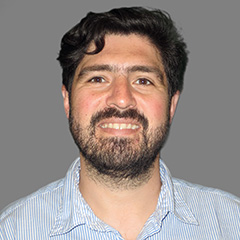Project Overview
Design and test approaches to improve program effectiveness using a series of rapid and short tests or analyses to provide decision makers with timely and actionable evidence of whether operational variations can improve program outcomes cost effectively.
To help build rapid feedback loops into early stages of project implementation using proven evaluation methods to improve effectiveness during scale-up.
- Results for Development
- Abt Associates
- Notre Dame Initiative for Global Development
- U.S. Global Development Lab
U.S. Agency for International Development
Mathematica was engaged in five RF MERL projects or pilots, including two on early grade reading and three on family care and mobile health. Four of these projects are featured below.
In Senegal, the Lecture Pour Tous (LPT) initiative taught reading in national languages in Grades 1 to 3 with the goal of improving student literacy. The project supplied enhanced continuous teacher professional development and coaching, and reinforced parent and community engagement. Mathematica employed mixed-methods research including lean testing, usability testing, and randomized control trials to test different models of implementation. Our research provided opportunities for project improvement, contributed to the literature on effective early grade reading strategies, and provided rigorous evidence that informed the Government of Senegal’s scaling of some project activities.
In India, the Tuberculosis Health Action Learning Initiative (THALI) deployed technology-enabled approaches to support tuberculosis patients in taking their daily treatment. Mathematica used mixed-methods analysis to evaluate the feasibility and utility of three adherence technologies. Our study included qualitative data collection and a review of administrative data to better understand the technologies and how patients’ compliance to their treatment plan differed by technology and patient characteristics. Our findings discussed implications for India’s efforts to combat tuberculosis.
In Guinea, where maternal, infant and child mortality are prevalent, the government launched an ambitious community health strategy to achieve universal health care. Mathematica employed a qualitative study using semi-structure telephone interviews with stakeholders and providers to assess the strategy’s early results and potential for scale-up. Our findings revealed that the program was taking root in spite of the COVID pandemic but some logistical aspects must be addressed for successful national-level rollout of community-based services. Our research provided guidance to stakeholders charged with scaling the program throughout the country.
In Tanzania, Tusome Pamoja (Let’s Read Together), aimed to improve primary school children’s reading, writing, and arithmetic in both mainland Tanzania and Zanzibar. One strategy for achieving these outcomes was through community engagement activities including school management committee strengthening, parent-teacher partnerships, and community-led action planning. Mathematica used administrative data from schools and implementers to identify community priorities, examine whether Tusome Pamoja activities translated into community action around those priorities, and assess whether community-led activities may have influenced student attendance and other outcomes. Our findings proposed strategies to strengthen approaches to community engagement and improve approaches for monitoring activities at the community level.
Evidence & Insights From This Project

Lecture Pour Tous Community Engagement Findings Memo
The RF MERL team paired a randomized control trial with qualitative data collection to assess extent to which parent and community engagement activities reinforced in-school activities to improve early grade reading in primary schools.
Learn MoreRelated Staff
Efficiency Meets Impact.
That's Progress Together.
To solve their most pressing challenges, organizations turn to Mathematica for deeply integrated expertise. We bring together subject matter and policy experts, data scientists, methodologists, and technologists who work across topics and sectors to help our partners design, improve, and scale evidence-based solutions.
Work With Us



